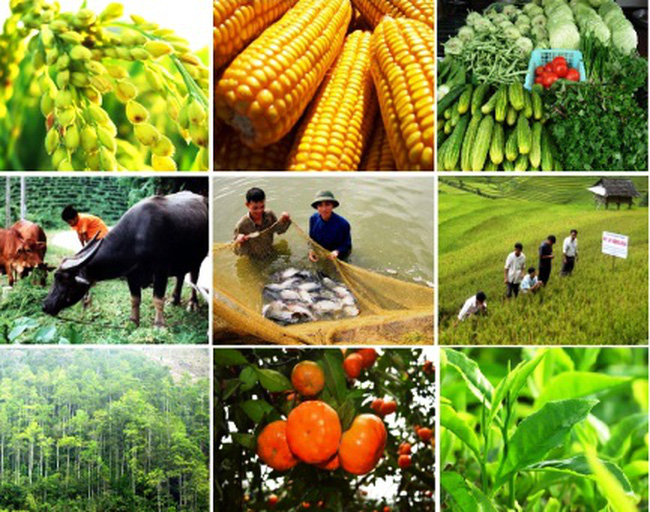December 17, 2025 | 02:45 GMT +7
December 17, 2025 | 02:45 GMT +7
Hotline: 0913.378.918
December 17, 2025 | 02:45 GMT +7
Hotline: 0913.378.918

The tasks are part of the Program on developing seed research and production to support the agriculture sector's reorganization between 2021 and 2030.
According to the draft, the state budget prioritizes the growth of national key plants and livestock production under the regulatory body's competence. Other plants and animals may be considered for assistance by the Ministry of Agriculture and Rural Development, other ministries, departments, and municipal governments, depending on the circumstances.
The state budget supports production at a pace commensurate with the rate of project implementation progress and within the scope of the State budget estimate authorized by the competent authority.
The draft clarifies that the state budget covers 100 percent of the costs associated with implementing projects aimed at developing national key seeds production that are administered and held by MARD, ministries, and departments in accordance with applicable economic and technical standards and documents approved by competent authorities.
Thus, the support covers the following: the acquisition of copyrights for new seeds from abroad; the import of broodstock to produce Fl hybrid seeds; the import of parent seeds for livestock and aquatic seeds that are not available in the country; the maintenance of hedge orchards, forest tree cultivars, and seed gardens to supply propagating materials to the units; and the import of seed production technology in accordance with the copyright transfer value.
Additionally, the central budget funds a portion of the costs associated with the administration and implementation of certain seed production development initiatives by MARD, ministries, and departments in the following areas:
To begin, the central budget partially funds costs associated with the production of the national important plant, animal, and aquatic seeds. In terms of culture, it covers up to 50% of the cost of domestic seed production; creation of super-primitive and parental seeds needed to create F1 hybrid seeds; and up to 30% of the cost of generating Fl hybrid seeds, which includes the cost of seedlings from leading orchards.
In the livestock sector, it contributes up to 10% of the cost of broodstock production. In the area of forestry, the budget covers up to 50% of the cost of original seed generation and 30% of the cost of tissue culture propagation of forest trees. It covers about 50% of the cost of broodstock production in aquaculture.
Translated by Samuel Pham

(VAN) Trading forest carbon credits is to reduce greenhouse gas emissions while creating sustainable livelihoods for local communities.

(VAN) Expanding the area of forests with FSC certification creates a foundation for elevating the economic value of forests, promoting sustainable management, and offering opportunities to participate in the carbon credit market.

(VAN) MAE and GIZ organized the conference to strengthening capacity and readiness for EUDR implementation in Vietnam.

(VAN) When women, men, children, and people with disabilities all have the opportunity to maximize their potential, the economy will grow, and the country will prosper.

(VAN) Effective disaster prevention and the creation of sustainable livelihoods through practical forestry policies are the distinct and crucial values of special-use and protection forests.

(VAN) The policy movement regarding carbon emission reduction is opening up a new approach, linking national goals with practical agricultural production.

(VAN) Deputy Prime Minister Tran Hong Ha made this request at the 24th meeting of the National Steering Committee for Combating IUU Fishing with 21 coastal provinces and cities joining virtually.